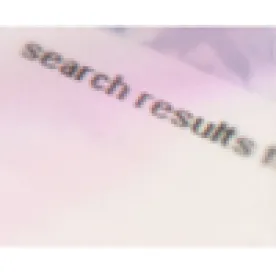Do you remember hearing the phrase “don’t rely on your parents to do your dirty work”? The district judge in a recent DMCA case may have had this principle in mind when he held that a website owner could not rely on its parent company’s DMCA agent designation to shield itself from a copyright infringement claim.
 The DMCA, or the Digital Millennium Copyright Act, was revolutionary for website owners that host user-generated content, in that it provides “safe harbors” that can shield online service providers from potential copyright infringement liability stemming from their users’ activities. In other words, if a user posts an infringing video or photograph on a website, the website owner may be able to take advantage of a DMCA safe harbor to avoid monetary liability for displaying the infringing content. This safe harbor is vitally important to the success of these website owners, since vetting all user posts for infringement issues would be burdensome and in most cases impossible.
The DMCA, or the Digital Millennium Copyright Act, was revolutionary for website owners that host user-generated content, in that it provides “safe harbors” that can shield online service providers from potential copyright infringement liability stemming from their users’ activities. In other words, if a user posts an infringing video or photograph on a website, the website owner may be able to take advantage of a DMCA safe harbor to avoid monetary liability for displaying the infringing content. This safe harbor is vitally important to the success of these website owners, since vetting all user posts for infringement issues would be burdensome and in most cases impossible.
However, protection under the DMCA safe harbors is not automatic. There is a series of hoops an online service provider must jump through in order to secure protection, including adopting and reasonably implementing a repeat infringer policy, accommodating standard technical measures that are used by copyright owners to protect copyrighted works, and designating an agent to receive notifications of claimed infringement, or so-called “takedown notices.” As the court in BWP Media USA Inc., et al. v. Hollywood Fan Sites LLC, et al. (S.D.N.Y. 2015) made clear, the failure of an online service provider to strictly comply with these procedural requirements can be fatal.
The plaintiffs in BWP Media USA claimed that certain celebrity images in which they owned the copyright appeared on defendants’ websites without a license and in violation of their rights. In response, the defendants asserted the affirmative defense that the copyright claims were barred by a DMCA safe harbor. The specific safe harbor that the defendants used as a shield is § 512(c), which covers infringement claims that arise “by reason of the storage at the direction of a user of material that resides on a system or network controlled or operated by or for the service provider.” Whether the defendants properly designated an agent to receive takedown notices in order to be eligible for safe harbor protection was the key issue in this case.
Designating an agent to receive notifications of claim infringement seems easy enough. However, there are strict procedural requirements in this process that, if not met, can be fatal to receiving any protection from the DMCA. Specifically, the statute requires that the service provider make available both on its website and in the US Copyright Office’s designated agent directory, the name, address, phone number, and email address of the agent. As the Court said:
§ 512(c) makes clear that it contemplates two parallel sources—the provider’s website and the [US Copyright Office] directory—where each service provider’s DMCA agent information is readily available to the public. For a service provider to fulfill only one of these two requirements is insufficient.
Although defendant Hollywood Fan Sites LLC purportedly listed a DMCA agent on its website, this particular entity was not listed in the US Copyright Office’s directory. Rather, only Hollywood.com, LLC, the parent company of Hollywood Fan Sites LLC, was identified on the DMCA agent designation form in the US Copyright Office’s directory. Although the defendants argued that the form was intended to cover the subsidiary Hollywood Fan Sites LLC as well, the Court concluded:
the statute does not contemplate that a service provider entity can be shielded by the safe harbor where that entity has no presence at all in the [US Copyright Office] directory. It is implausible that parties attempting to find a provider’s DMCA agent designation, using the [US Copyright Office]’s database, are expected to have independent knowledge of the corporate structure of a particular service provider.
The Court further noted that even if the designation form would have expressly listed the subsidiary as well, the preamble to the applicable regulations explicitly rejects a joint designation by a parent and subsidiary. Indeed, the wording states:
each Interim Declaration may be filed only on behalf of a single service provider. For purposes of these interim regulations, related companies (e.g., parents and subsidiaries) are considered separate service providers who would file separate Interim Designations.
Finally, the defendants argued that because the plaintiffs submitted takedown notices to the subsidiary entity on a few occasions, which resulted in the infringing material being removed, defendants did comply with the DMCA safe harbor requirements. The Court disagreed, stating “the fact that [Hollywood Fan Sites LLC] may have actually received notices of infringement, and consequently removed the images claimed to be infringing, is also insufficient” and “cannot save [Hollywood Fan Sites LLC] from disqualification for the § 512(c) safe harbor.”
The lesson to be learned from this case is clear. Website owners who allow users to post user-generated content should ensure that they comply with all of the technical requirements of the DMCA. It is important to take action as soon as possible to ensure that safe harbor protection will be in place, before it is needed. Indeed, as the Court noted:
A service provider cannot retroactively qualify for the safe harbor for infringements occurring before the proper designation of an agent under the statute.
With respect to the agent requirements, companies should make sure the designation is available both on their website (such as in the terms of use) and in the US Copyright Office’s directory, which can be accessed and reviewed here. And the designation should name the website owner, not its parent.




 />i
/>i

